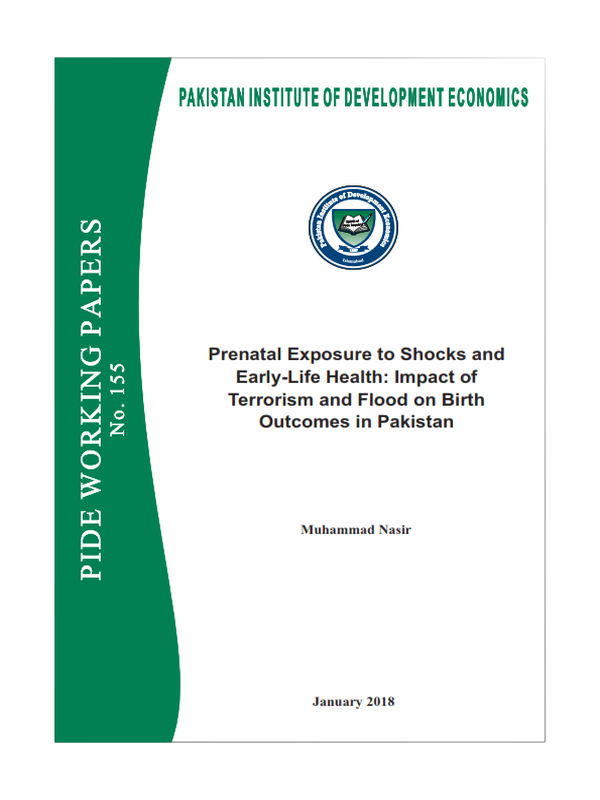
Pakistan Institute of Development Economics
- Home
Our Portals
MenuMenuMenuMenuMenuMenuMenu - ResearchMenuMenuMenuMenuMenuMenuMenu
- Discourse
- The PDR
- Our Researchers
- Academics
- Degree Verification
- Thesis Portal
- Our Portals
Prenatal Exposure to Shocks and Early-Life Health: Impact of Terrorism and Flood on Birth Outcomes in Pakistan
Simultaneous exposure to natural calamities and conflict shocks is a phenomenon that has been largely understudied. The interplay between natural disasters and conflict shocks can have adverse effects extending beyond the current family members to children in utero. The current paper tries to fill this gap by investigating the impact of floods on pregnancy and birth outcomes across conflict-affected and unaffected districts in Pakistan. Using mother fixed effects strategy in a triple difference framework, the results suggest that in-utero exposure to flood in conflict-affected areas increases the probability of small birth size by 8.1 percentage points. Moreover, exposure to violence in nonflooded districts reduces the likelihood of small birth size by 5.6 percentage points but increase the probability of miscarriage by 3.7 percentage points, thereby suggesting selection into birth. Significant heterogeneities are found across place of residence, income groups, and education levels.



